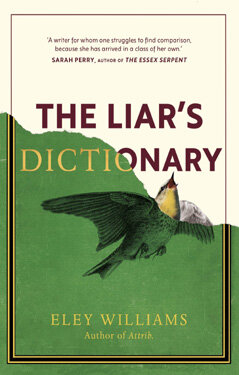So much current political discourse is thrashed out online and on social media that it can feel like an overwhelming cacophony. This arena which I'd idealistically like to imagine to be a forum for debate and exchange more often becomes a battleground where opposing sides become even more entrenched in feelings of righteousness. So when I took up the challenge from the Trollope Society to read my first novel by this writer and the first novel in Trollope's Barsetshire series I didn't anticipate the extreme pleasure I'd find in the more mild-mannered and reasonable moral, social and political debate as conducted in Trollope's fictional cathedral town of Barchester. The Rev. Septimus Harding is the warden of a charity, a role which comes with a generous income. John Bold is an idealistic young surgeon and reformer who calls into question whether the wardenship is really entitled to the funds which were primarily intended for the residents of the charitable hospital. However, Bold also has a romantic interest in Harding's daughter Eleanor. Tensions run high when a newspaper article comes out accusing Harding of retaining the charity's funds for himself out of greedy self interest.
If this argument were to play out today there would likely be a public pile on Mr Harding until he was shamed into resigning from his role. Mr Harding would be a figure of ridicule turned into a meme. He would be “cancelled”. However, in Trollope's world things play out very differently. Through self-scrutiny on the part of Mr Harding and an entreaty to Mr Bold on the part of Eleanor, the accused and the accuser switch positions on the matter. This is not only a comic inversion of the central drama in this story, but it also shows the essential good nature of people who are receptive to critique and are willing to reconsider their views. What instantly endeared me to Trollope's writing was that (though his characters might possess certain prejudices) they feel well-rounded and realistic like neighbours. Their inner sense of justice is more forcefully applied to how they themselves interact with society rather than projecting their rigid idealism onto the rest of the world. Injustice is recognized and, indeed, the salary the warden receives is probably far more than the original founder of the charity ever intended, but there is also a recognition of the complexity of how communities work and the overall impact from implementing rapid change.
This makes “The Warden” a more quiet and contemplative novel than might even be found amongst Trollope's contemporaries. Although the misuse of charitable funds was a contentious issue in the mid-19th century because there were few governmental programs to deal with poverty, Trollope's central social issue is more localised and humble compared to the grand subjects being presented in much of Charles Dickens' fiction. Nor is Trollope inclined to describe his characters in language which demarcates whether they were essentially “good” or “bad” in nature as Dickens relentlessly does in his fiction. Trollope even hilariously satirizes Dickens in this novel when at one point a character amuses himself with a book by an author called Mr Popular Sentiment. Trollope describes how “Mr Sentiment is certainly a very powerful man, and perhaps not the less so that his good poor people are so very good; his hard rich people so very hard; and the genuinely honest so very honest.” This playfully pokes fun at the way there is little moral ambiguity among Dickens' characters and how to describe them in such strident terms diminishes the truly complex nature of humanity.
Similar to other novels of the 19th century, Trollope as author is heavy-handed in the way he steers the narrative at certain points. However, I also found this quite enjoyable. Trollope is prone to interjecting his own opinions on the characters in the story. One section hilariously describes a large family in much detail, but the author repeatedly interjects how they are essentially dull. Not only does Trollope make his prejudices about certain characters known, but he also speculates on his readership of the ladies or “middle-aged bachelor” who might be reading these pages. It's amusing how this makes the author himself into a kind of character rather than being an unseen and entirely objective god behind the story.
There's also a profuse amount of delightful detail about the period contained in the “The Warden”. Trollope describes the way this society is ordered and how finance works as well as details of what you might see in a particular kind of individual's house or walking down the street. There's a wonderful chapter titled 'A Long Day in London' when Mr Harding is visiting the capital and finds ways to occupy himself until his scheduled meeting. We follow his journey along The Strand up to Westminster Abbey as he views various shops and finds his meals. Rather than agonize over the monumental decision he's made, Mr Harding seeks soft contentment in humble pleasures observing “What on earth could be more luxurious than a sofa, a book and a cup of coffee?” This epitomizes the way this writing could be labelled as “cozy fiction” but at the moment I really appreciate the respite from the modern world that this book offered. There's also something admirable about the way the novelist recognizes the dignity and heart in all his characters as they strive to do what's right. I'm greatly looking forward to reading more of the novels in this series of books and other novels by Trollope.




















